GREAT MUSIC FIGURES — SINGERS

Huseyngulu Malik oglu Rzayev (Huseyngulu Sarabski) (1879-1945) — Azerbaijani opera singer (lyric tenor), actor, director, pedagogue, theater figure.
From childhood, he was distinguished by a great passion for music and a good voice.
As he wrote in his memoirs, "During the Period of Muharram, he sings religious songs, also listens and studies mughams and songs at festivities, weddings and celebrations". When he was 12 years old, he saw a theatrical performance for the first time: it was Mirza Fatali Akhundov's comedy "Adventure-Vaziri-Khani-Lankaran" performed by amateurs under the name "Khan Sarabi". Huseyngulu, whose real surname was Rzayev, later took the stage nickname Sarabski, which echoed this strong impression.
Huseyngulu Sarabski came to the theater at a difficult time. He tried to withstand the criticism and sometimes threats of those who considered the theater a "satanic act" and acting a "profession unsuitable for a man." Nariman Narimanov, Abdurrahim bey Hagverdiyev, Rahim bey Malikov, his colleagues Huseyn Arablinsky, Jahangir Zeynalov, and others played a great role in the arrival of Huseyngulu Sarabski to the theater, in his choice and development of acting. Huseyngulu, who first played the role of Rasul in Nariman Narimanov's play "The Trouble of the Tounge (to get into trouble for talking too much)" in 1902, later played several different roles in the plays of Mirza Fatali Akhundov, Najaf bey Vazirov, Abdurrahim bey Hagverdiyev. He performed not only in the national repertoire but also in the works of William Shakespeare, Heine, Schiller, Gogol, translated into Azerbaijani. The impressive mugam "Hijaz", which he performed as an Arab traveler in the play "Almansur" by Heinrich Heine, transported him to the new world of Azerbaijani culture - musical theater, opera. Sarabski attracted the attention of Uzeyir Hajibeyov, who was working on the first opera of Azerbaijan and the East at that time, "Leyli and Majnun". Uzeyir Hajibeyov, realizing the natural and lively potential of Huseyngulu Sarabski as an opera artist with an attractive voice and knowledge of mughams, invited him to play the lead role in his opera - the role of Majnun. This role brought Huseyngulu Sarabsky, in the true sense of the word, national love and fame. This role was, perhaps, a turning point in the attitude of those who consider acting a "clownery". As the actor himself wrote, "those who pointed at him in time, looked at him with contempt, now called him Majnun, applauded and greeted him with respect." For more than 30 years on stage, he played this role 400 times, he becomes known as the irreplaceable Majnun of the Azerbaijani scene.
Huseyngulu Sarabski in the history of national opera, in Uzeyir Hajibeyov's operas and operettas Karam ("Asli and Karam"), Sheikh Sanan ("Sheikh Sanan"), Shah Abbas ("Shah Abbas and Khurshidbanu"), Sohrab ("Rustam and Sohrab"), Sarvar ("If Not That One, Then This One"), Marjan bey ("Husband and wife"), Asgar ("Arshin mal alan"), Shah Ismail in "Shah Ismayil" by Muslim Magomayev, Ashig Garib in Zulfugar Hajibeyov's "Ashig Garib" wrote his name in history as the first performer of these roles.
Khurshid Gajar (1894-1963) — opera singer, one of the first Azerbaijani women to receive vocal education outside Azerbaijan.

Honored Art Worker of the Republic of Azerbaijan received his vocal education in 1915 at the Moscow Conservatory. After graduating, he worked in the art department of the People's Commissariat of Education in Moscow, was a soloist of the Moscow Variety Ensemble. In 1924-34 he worked at the Azerbaijan Opera and Ballet Theater, played in performances such as Gulzar ("Shah Ismail", M.Magomayev), Khurshidbanu, Gulchohra and Asya, Gulnaz ("Shah Abbas and Khurshidbanu", "Arshin mal alan", " If Not That One, Then This One " U.Hajibeyov), Mikaela (" Carmen ", J.Bize) and others.
Since 1934, she worked in "Azerneshr" as the director of the music publishing house she created on her own initiative, at the same time, in 1935, she created a studio at the Azerbaijan Opera and Ballet Theater prepared operas "Demon" (A.Rubinstein), "Tsar's Bride" (N.Rimsky-Korsakov) performed by students. She played a role in recording mugams such as Duga, Rast, Segah-Zabul.
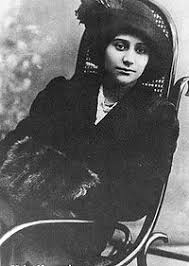
Shovkat Hasan gizi Mammadova (1897-1981) — The first professional Azerbaijani female singer (lyrical coloratura soprano), Azerbaijani opera singer, and teacher.
Sensing Shovkat's desire for music, her father sent her to Baku in 1910 with the help of millionaire HZ Tagiyev. In 1911, with the help of Zeynalabdin Tagiyev and his wife Sona, she entered a music school in Milan, Italy. However, in 1912, her aid was cut off and Mammadova had to return to Russia. She continues her education at the Tbilisi Music School. After graduating from a music school in Tbilisi (1910), in 1911 she left for Milan to continue her education, where she took lessons from the famous singer D'Ambrosio. In 1917-21 she studied at the Kyiv Conservatory, where she promoted Azerbaijani music in concerts with R.Glier. On her initiative, the Baku Theater Technical School was opened in 1923, and a music publishing house was established. She first performed on the stage of the Azerbaijan Opera and Ballet Theater in 1921 as Violetta ("La Traviata", J.Verdi), and was a soloist of the theater until 1948 (intermittently). On the Azerbaijani opera stage, she connected the best traditions of Russian and world vocal art with the features of national music. She was twice awarded the Order of Lenin, 2 Red Banners of Labor, and the Order of the Badge of Honor.
Since 1921, she has performed in Russia, France, Italy, Iran, and Georgia. During her visit to Italy, she re-entered the Milan Music School, where she completed her unfinished education in 1912, in 1927–1930. Later, she performed at the Azerbaijan State Academic Opera and Ballet Theater. In 1923, she established the first music publishing house in Azerbaijan and the Baku Higher Theater School (now The Azerbaijan State University of Culture and Fine Arts). She also gave professional vocal lessons to students at the Azerbaijan State Conservatory until her last days.
In 1923, at the initiative of Sh. Mammadova, the Baku Theater Technical School was opened, and in 1923-1925 she worked as its director and director of the music publishing house.
Main parties: Rosina ("The Barber of Seville", G.Rossini), Lakme ("Lakme", L.Delibes), Gilda ("Rigoletto", G.Verdi), Olympia ("Hoffman's Tales", J.Offenbach), Marguerite de Valois ("Les Hugenots", G.Meyerbeer), Snow Maiden ("Snow Maiden", N. Rimsky-Korsakov), Antonida ("Ivan Susanin", M.Glinka), etc. The parties Shahsanam ("Shahsanam", R.Gliere), Nargiz, Gulzar ("Nargiz", "Shah Ismayil", M.Magomayev), Gulchohra ("Arshin mal alan", U.Hajibeyov) have a special place among her work. Her repertoire included Azerbaijani folk songs, chamber and vocal works by Russian and Western composers. She has performed in Tbilisi, Odesa, Moscow, Kyiv, Leningrad, Tashkent, Paris, and Tabriz. She was the first chairman of the Azerbaijan Theater Society. In 1945-81 she worked as a teacher at the Azerbaijan State Conservatory.
Bulbul (Murtuza Mashadi Rza oglu Mammadov) (1897-1961) — Azerbaijani opera singer (lyric-dramatic tenor), tasnif (Azerbaijan national music genre. It is performed before or after the mugam) performer, researcher of music folklore, founder of Azerbaijan's professional vocal art.
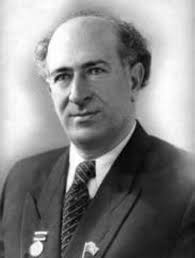
In 1907, Bulbul began to study music at the Shusha mollakhana (Muslim ecclesiastical school). In 1909, Bulbul moved to Ganja. This is where the fame of the young singer begins. In 1911 he was invited to perform in Tbilisi, in a summer house where public meetings were held. Here he met a famous Georgian singer. He started his stage career in 1916. From 1920 he was a soloist of the Azerbaijan State Academic Opera and Ballet Theater (then the opera troupe of the United State Theater). In the first years of his activities, he played in Uzeyir Hajibeyov's opera "Leyli and Majnun" (Ibn Salam), "Asli and Karam" (Karam), in Z. Hajibeyov's opera "Ashig Garib" (Garib). In 1927 he graduated from the Baku Conservatory. He went to Milan, Italy to continue his education. In 1931, after graduating from the Milan Conservatory (class of Giuseppe Anselmi, Delliponti, and R.Grani), he returned to Azerbaijan and began teaching at the Azerbaijan State Conservatory. In 1932, on his initiative, a research cabinet studying Azerbaijani folk music was established at the Azerbaijan State Conservatory. Since 1945, the Institute of Arts of the Azerbaijan Academy of Sciences has been studying Azerbaijani folk music. In 1938 he was awarded the title of People's Artist of the USSR. In 1940 he was elected professor. In 1950 he was awarded the USSR State Prize. He was elected a deputy of the Supreme Soviet of the Azerbaijan SSR. He was twice awarded the Order of Lenin of the USSR, 2 Orders of the Red Banner of Labor, the Order of the Badge of Honor, the Garibaldi Order of Italy, and medals.
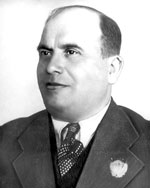
Huseynaga Hajibababayov (1898-1972) — opera singer (lyric tenor).
Huseynaga studied at the Alekseysky School in Baku, and then at the educational institution organized by the famous theater figure Habib bey Mahmudbeyov. In 1910 he was admitted to the choir of the theater troupe of the "Nijat" cultural and educational society, since 1913 he worked in the theater troupe of "Safa" cultural and educational society, in the group "Muslim opera artists" led by Huseyngulu Sarabski, he worked as a dramatic and musical theater actor in "Administration of brothers Zulfugar bey and Uzeyir bey Hajibeyov". From 1919 to August 1925 he worked in the troupe of the National Drama Theater, from the autumn of 1925 he worked as a soloist at the Azerbaijan State Opera and Ballet Theater.
Along with many dramatic characters in various troupes, he performed the female characters in operas and operettas such as Leyli, Asli, Khurshidbanu, Gulchohra, and Jahan aunt, Gulnaz ("Leyli and Majnun", "Asli and Karam", "Shah Abbas and Khurshid banu", "Arshin mal alan" and "If Not That One, Then This One", Uzeyir Hajibeyov), Garib's mother ("Ashig Garib", Zulfugar Hajibeyov), Gulzar ("Shah Ismayil", Muslim Magomayev).
His mastery was demonstrated by the main performances that he performed from 1925 to 1972: Tsar Brendey, Indian Guest ("The Snow Maiden" and "Sadko", Nikolai Rimsky-Korsakov), Garib ("Ashug Garib", Zulfugar Hajibeyov), Sarvar, Askar, Majnun, Karam ("Mashadi Ibad", "Arshin Mal Alan", "Leili and Majnun", "Asli and Karam", Uzeir Hajibeyov), Lensky ("Eugene Onegin", Pyotr Tchaikovsky), Alyar, Shah Ismail ("Nargiz" and "Shah Ismail", Muslim Magomayev), Count Almavivo ("The Barber of Seville", Coachchino Rossini). Opera artist Huseynaga Hajibababeyov was awarded the honorary title "Honored Artist" of the Republic of Azerbaijan in 1934, and in 1938 - "People's Artist".
Hagigat Ali gizi Rzayeva (1907-1969) — singer (soprano), teacher. She is one of the first female singers to perform on the Azerbaijani stage.
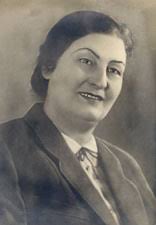
Young Hagigat's interest in opera and the stage arose after she went to an amateur theater club in Baku. After checking her voice, composer Muslim Magomayev hired her at the Azerbaijan Opera Theater. However, despite the dissatisfaction of her family, Mrs. Hagigat has since dedicated her life to opera forever.
In 1928-1932 she studied at the mugam department of the Azerbaijan State Conservatory, took lessons from Jabbar Qaryagdioglu, Seyid Shushinsky, and Gurban Pirimov. From 1927 to 1952 she was a soloist of the Opera and Ballet Theater, a performer of mugam and folk songs. Arabzangi ("Shah Ismail" — Muslim Magomayev), Leyli, Asli, Telli ("Leyli and Majnun", "Asli and Karam", "Arshin Mal Alan" — Uzeyir Hajibeyov), Shahsanam ("Ashig Garib" — Zulfugar Hajibeyov) are the main stage images she created.
As for Hagigat Rzayeva's film career, she has appeared in very few films. But when we look at these films, we see that she is not only an opera singer but also a very talented film actress. Especially in the film "Stepmother", she played the role of Gamar aunt so naturally that no one else could play this character like her. Aunt Gamar is a negative character in the film. She completely rejects the fact that her son-in-law Arif will bring a new mother to Ismayil, and doubts that Dilara will be a good mother till the end of the film. She even used the words "You will see! She will not be a mother to Ismail. Stranger woman can never be like his own mother and never will" — the quote is engraved in the memories.

Rashid Majid oglu Behbudov (1915-1989) — singer.
Rashid, who had studied in the school choir since childhood, entered the railway technical school in 1933. During his studies, he worked in a student amateur orchestra.
At the end of 1943, he was invited to star in the film "Arshin Mal Alan" based on the operetta of the same name by Uzeyir Hajibeyov at the Baku Film Studio. In 1944, a concert was held in the summer hall of the Azerbaijan State Philharmonic Society. The film was released in 1945 and soon gained great popularity not only in Azerbaijan but throughout the Soviet Union. In 1946, Rashid Beybudov was awarded the Stalin Prize for his role Asgar in this film.
He performed at the 1949 World Festival of Youth and Students in Budapest.
In 1946-1956 he was a soloist of the Azerbaijan State Philharmonic Society, in 1953-1960 he was a soloist of the Azerbaijan State Opera and Ballet Theater named after M.F. Akhundov, in 1957-1959 he was the organizer and head of the Azerbaijan State Concert Ensemble. Since 1966, he organized the Azerbaijan State Song Theater, which organically combines various genres of music and pop art, such as jazz, ballet, pantomime, and until the end of his life was its soloist and artistic director.
Along with all Soviet republics, Rashid Behbudov, who performed in Argentina, Bulgaria, Belgium, Chile, China, Ethiopia, Finland, India, Iran, Iraq, Italy, Egypt, Turkey, and other countries, performed Azerbaijani folk songs and played a huge role in popularizing vocal works of Azerbaijani composers abroad. Rashid Behbudov wrote a book "In Far India" about his visit to India.
Maria Titarenko (1917-2002) — Azerbaijani opera singer.
While studying at the Azerbaijan State Conservatory, M.Titarenko attracted the attention of Uzeyir Hajibeyov, and the brilliant composer invited him to play the part of Nigar in the opera "Koroglu".
So, in 1943, she began working in the opera house, and in 1944, together with the unique performer of the part Koroglu Bulbul, she sang the part of Nigar in Azerbaijani. Of the 35 stage images created by M. Titarenko, 6: images from the operas "Koroglu", "Azad", "Nizami", "Vagif", "Sevil" and the image of Gulchohra performed by Valida Vazirova in the adaptation of the play, the operetta "Arshin Mal-alan "(actress Leyla Badirbeyli) is performed in Azerbaijani. In the Russian-language version of the script, the character was performed only by Titarenko. She has performed leading roles in the operas Faust, La Boheme, Iolanta, Eugene Onegin, The Snow Maiden, Masquerade, and others.
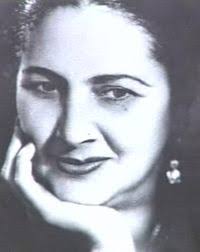
Gulkhar Ibrahim gizi Hasanova (1918-2005) — opera singer (soprano).
In 1935-1937 she studied at the Baku Theater College, in 1959 she graduated from the Azerbaijan State University.
G. Hasanova began her stage career at the Azerbaijan Theater for Young Spectators (1936-1942). She was hired by the Azerbaijan State Opera and Ballet Theater in 1942 on the advice and assistance of Uzeyir Hajibeyov. The next fate of a talented artist with a melodic voice is connected with the stage of the Azerbaijan State Opera and Ballet Theater. Here she created bright, colorful images of women. Since 1980 she has been working as a theater teacher.
In her performance Asli, Khananda girl ("Asli and Karam", "Koroglu", U.Hajibeyov), Shahsanam ("Ashig Garib" Z.Hajibeyov), Mrs.Taravat ("Bahadir and Sona", S.Alasgarov), Anna ("Bride's Rock", Sh. Akhundova) and other parties are distinguished by great professionalism and originality. The culmination of her work was the strong, bold Arabzangi created by Muslim Magomayev in the opera Shah Ismail and the roles of Leyli and Leyli's mother in U.Hajibeyov's "Leyli and Majnun". After finishing the stage, G.Hasanova taught young singers the secrets of performing in the national mugham opera. G.Hasanova was awarded the "Order of Glory" of the Republic of Azerbaijan.
Shovkat Feyzulla gizi Alakbarova (1922-1993) — Azerbaijani singer.

After graduating from Huseyngulu Sarabski's class at the Asaf Zeynalli Music School, she began performing.
In 1938-1945 she was a soloist of the Azerbaijan State Song and Dance Ensemble. From 1945 she worked as a soloist of the Azerbaijan State Philharmonic. Shovkat Alakbarova's performance was characterized by high vocal culture, emotionality and lyricism, and skillful improvisation for mugham.
In 1937, she participated in the competition of amateur groups and with her performance attracted the attention of masters such as Uzeyir Hajibeyov, Said Rustamov, Bulbul. At the final concert at the Opera House, Shovkat Alakbarova sang "Karabakh Tragedy" and was in the top three along with Fatma Mehraliyeva and Gulaga Mammadov. This competition laid the foundation for Shovkat Alakbarova's entry into professional music. Folk songs, mugams, composer's songs performed by Shovkat Alakbarova, who started working as a soloist of the Philharmonic in 1945 become very popular in Azerbaijan.
The repertoire of Shovkat Alakbarova, who has successfully performed in many cities of the USSR, France, Switzerland, Sri Lanka, Afghanistan, India, Egypt, Algeria, Iran, Turkey, Poland, and other foreign countries included mughams such as Segah, Qatar, Shahnaz, songs by Azerbaijani composers and oriental songs.
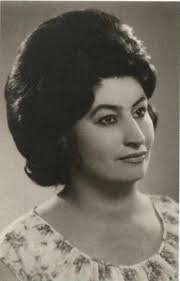
Tukazban Maharram gizi Ismayilova (1923-2008) — Azerbaijani singer.
In 1939-1944 she studied at the Music College named after. Asafa Zeynalli and began performing as a professional singer. Tukazban Ismayilova, who first began her career in 1944 as a singer in the choir of the Azerbaijan Radio Committee (1946-1949), giving concerts on the front as part of the campaign brigade during the Second World War, was a soloist of the Azerbaijan State Philharmonic in 1948-1956.
She was a soloist of the Azerbaijan State Tour-Concert Union (1978-2008). In 1994-2004 she worked as a teacher at the Art Gymnasium. Tukazban Ismayilova, a prominent representative of the great generation of great artists of our national music, was distinguished by high-performance skills and stage culture. Tukazban Ismayilova, who has dedicated more than sixty years of her life to mugham, has worked hard for the development of our music. Classical Azerbaijani mugams and folk songs are sung by her have forever entered our history. Her repertoire includes mugam, tasnif, folk songs ("Kurdun Gozeli", "Yeri, dam usta yeri", "Karabakh Shikestasi", "Garagoz", etc.) and songs by Azerbaijani composers. "Gatar", "Kharij Segah", "Shahnaz" and other mughams and songs sung by her in a unique style enriched our national musical treasury. Tukazban Ismayilova was an outstanding artist in our culture. Many songs and classifications are widespread due to her unique performance.
Tukazban Ismayilova deservedly represented Azerbaijani culture during her tours in many countries of the world (Germany, Poland, Iraq, Iran, Turkey, Egypt, Algeria, etc.). The merits of Tukazban Ismayilova in the development of Azerbaijani musical culture were highly appreciated. In 1993 she was awarded the People's Artist of the Republic of Azerbaijan, in 1998 — the "Order of Glory" of the Republic of Azerbaijan.
Mikayil Azafli (Mikayil Jabbar oglu Zeynalov) (1924-1990) — Ashug.
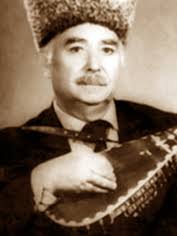
Mikail Azafli was a master ashug who wrote with great enthusiasm, developed the art of ashug, and became a classic during his lifetime. The ashug-poet, who wrote poems under the stage-name "Coshgun" (Passionate) at an early age, soon took the nickname of his native village. As Professor Maharram Gasimli rightly points out, Azafli is one of the artists who created real works of art in all forms of ashug poetry and duly continues the classical ashug traditions. "Azafli dubeyti" ( the name of the lyrical ashug melody), "Azafli beautification", "Azafli art", "Azafli world", "Azafli geraylisi" ( In Ashug poetry: an eight-syllable form of poetry consisting of four lines in each verse), "Azafli anthem", "Mikayili", "Azafli mountains", "Azafli sea", "Mazahiri", Saz tunes such as "Azafli muhammasi" ( the genre of folk poetry — poem), "Shah Sarayi" were memorized.
It was not accidental that Azafli was elected a member of the Presidium of the All-Union Music Society. This was an appreciation and respect for Azafli Mikayil's musical talent. Ashug's archive contains an official letter dated November 12, 1987, from the First Deputy Chairman of the Society VM Sameilenko. Azafli was repeatedly invited to Moscow and first took part in the festival in Moscow in 1954 and was awarded medals.
Ashug Mikail Azafli was against communism and expressed it in his poems. He was convicted in 1961 of theft and possession of a weapon in his home and sentenced to four years in prison. Prison life gave the artist as much experience as he could at a university. His poems describing his life in prison were memorized while he was still in prison.
Although Azafli's poetry was widespread among the people, it didn't appear in the press until the mid-1980s. By this time, the foundations of the Soviet system had begun to crumble. Therefore, with the help of writer Nahid Hajiyev, who held a leading position on Azerbaijan Television in the 80s, an hour-long program dedicated to his work was aired with the participation of the ashug. The program was met with great interest. Later, "Writer" Publishing House published the artist's book "Old Eagle" (1987). On May 17, 1989, Azafli Mikayil was awarded the honorary title of "Honored Cultural Worker" by the Decree of the Presidium of the Supreme Soviet of the Azerbaijan SSR for his great contribution to the development of literature and art.
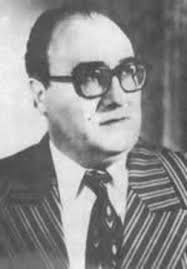
Rauf Israfil oglu Atakishiev (1925-1994) — singer, lyric tenor, pianist, teacher.
He graduated from the Moscow State Conservatory in the class of Konstantin Nikolaevich Igumnov (1873-1948) and took vocal lessons from Antonina Vasilievna Nezhdanova (1873-1950). He was a soloist of the Opera and Ballet Theater.
On the stage of the Azerbaijan Opera and Ballet Theater, he performed the role of the Asgar in Hajibeyov's musical comedy "Arshin Mal Alan". In the film "Arshin mal alan" made in 1965, Asgar's songs were performed by Atakishiyev.
He played parts in Lensky ("Eugene Onegin", P. Tchaikovsky), Alfred ("Traviata", G.Verdi), Almaviva ("The Barber of Seville", G.Rossini), Faust ("Faust", S.Guno), Balash ("Sevil") ", F. Amirov).
He was a lyrical-dramatic tenor and a pianist. In the theater, he played parts in Asgar ("Arshin mal alan"), Faust ("Faust"), Earl Almaviva ("The Barber of Seville", Gioachino Rossini), Prince Sinoda ("Demon", Anton Rubinstein), Hoffman ("The Tales of Hoffmann", Jacques Offenbach), Malkhaz ("Daisi", Zacharia Paliashvili), Alfred ("Traviata", Giuseppe Verdi), Edmond ("The Bells of Corneville ", Robert Planquette), Anatoly ("The Fate of Man").
He is the first performer of the song "I met a girl" more popular in the performance of Rashid Behbudov. The song was first performed in 1957 in the film of the same name, filmed at the Stalinabad film studio of the Tajik SSR.
Fatma Mehraliyeva (1926-2000) — Singer (lyrical soprano).
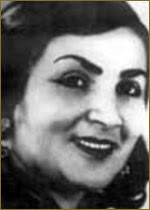
The performance of an 11-year-old girl who sang the folk song "Guba's white apple" at the music festival attracted the attention of genius Uzeyir Hajibeyov. And so Fatma came under the protection of the great composer.
In 1940, she got a job in the ensemble "Sazchi Girls" under the Azerbaijan State Philharmonic. In the melancholy voice of the young singer, the musical samples written by the genius Uzeyir Hajibeyov on the theme of patriotism are becoming more popular and introduce the performer. The name of F.Mehraliyeva, the first singer of Samad Vurgun's song "Sister of Mercy" with music by Uzeyir Hajibeyov, quickly became famous. The songs he sang during World War II are included in the gold fund of the Azerbaijan National Radio.
Thus, successfully moving on the path of art, F. Mehraliyeva finds fame as a skilled performer of mughams, folk songs, and tasnifs, as well as composer songs. Due to this fame, she was invited to the film "Arshin mal alan" based on the operetta of the same name by Uzeyir Hajibeyov in 1945 and played the role of Telli in the screenplay. Performing on the stage of the Philharmonic for many years, the artist, who won the hearts of thousands and millions with her voice and performance, managed to make a mark with songs as "Olmaz-olmaz", "Gubanın ag alması"(Guba's white apple), "Azerbaijan maralı" (Azerbaijani deer), "Ahu kimi" (As a gazelle), "Garagila" (Blueberry), "Mugan gizi" (Mughan girl), "Unuda bilmirəm" (I can't forget) and etc.
It is a fact that in the history of Azerbaijani mugham only Fatma Mehraliyeva skillfully sang "Kesme shikeste". This requires special tones. Although many female performers wanted to, they could not sing this piece of music as she did.
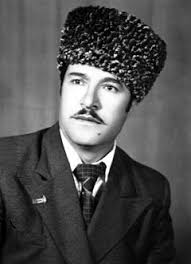
Alipanah Alasgar oglu Panahov (1926-1978) — ashug-poet, honored cultural worker of Azerbaijan (1967). Member of the Writers' Union of Azerbaijan (1974).
He has been in the art of ashug since 1948. He skillfully played 32 traditional ashug tunes on the saz. Ashug Panah composed 18 ashug songs ("Dilbar", "Yeddi gardash" (Seven brothers), "Azerbaijan", etc.). At the same time, he composed songs, that must be menshioned "Nə gesheng bezenmisen"( How beautifully you dressed up!) is one of them. He skillfully sang epics like "Gahraman shah Najaf"(Hero king Najaf), "Asli and Karam", "Ashug Garib" and etc. at meetings. Ashig Panah is the author of 2 epos ("Peace", "Cotton Growers") and up to 128 goshma (a form of an Azerbaijani poem).
In the works of Ashig Panah, gerayli and goshma play a key role. They express patriotism, diligence, devotion to nature, to country, high human qualities, and other important qualities worthy of a poet-ashug. Among his poems are "Dilbar", "Injiyer" (She will be offended), "I fell in love", "Our girls", "Mother Kura", and from the goshma's "Desin" (Let her tell), "Children", "Speak", "Lover's", "Stand by this side", " I saw" and so on. names can be mentioned. Feelings of love, the lover's desire for help from his half, and the description of nature play an important role in his "Dilbar" poem. The beauty of the Kura River is reflected in "Mother Kura". Ashug Panah fond of this river. So he treats her the same as his mother and calls her "Mother Kura". This reflects the fact that the river passed through Absheron and reaches Baku. In the goshma "Stand by this side" the author talks about calling a distant beloved to his side, about her bushy eyebrows, the way she looks, about her laughter, about his request to reduce flirting, and also compares her hair to strings of his saz, and tells her that no one can compare with his lover. The song "I saw" is mainly about the homeland. He talks about the diligence of the heroic sons and daughters, the fact that there is no place like Nakhchivan, Karabakh, Mil, Mugan generally like Azerbaijan and it is like a resemblance to paradise, and the existence of ancient history of the homeland is reflected in the comparison with Koroghlu.
Rubaba Khalil gizi Muradova (1933-1983) — Azerbaijani singer (messosoprano).
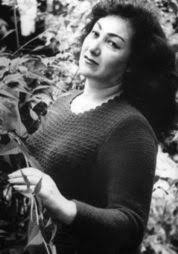
She studied at the drama theater in Sabirabad. Alasgar Alakbarov saw her by chance and invited her to the Baku Philharmonic. From 1954 she was a soloist of the Azerbaijan State Opera and Ballet Theater. In 1955 she graduated from the class of Seyid Shushinsky at the Baku Music School named after A.Zeynalli. In 1971 she was awarded the title of People's Artist of the Azerbaijan SSR. She was a singer with a strong, impressive and varied voice, with an original style of performance. From 1954 she was a soloist of the Azerbaijan State Opera and Ballet Theater.
She played main parts in: Leyli ("Leyli and Majnun" — Uzeyir Hajibeyov), Asli ("Asli and Karam" — Uzeyir Hajibeyov), Khananda Giz ("Koroglu" — Uzeyir Hajibeyov), Arabzangi ("Shah Ismail" — Muslim Magomayev), Shahsanam ("Ashig Garib" — Zulfu Hajibeyli), Sanam ("Gelin qayası" (Bride's Rock) — Sh. Akhundova) and others. She was a skilled performer of mugham, tasnif and folk songs.
She was awarded the "Badge of Honor".
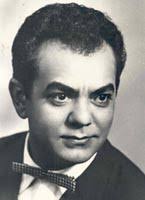
Lutfiyar Muslim oglu Imanov (1929-2008) — Azerbaijani opera singer (dramatic tenor).
Lutfiyar Imanov was born on April 17, 1929 (according to other sources in 1929) in the village of Petropavlovka (now Sabirabad, Azerbaijan). As a schoolboy, he first tried himself in the role of an actor in 1943 at the Sabirabad State Drama Theater. At the age of 18, he became the head of a drama club. From 1948 he worked as an art director in Sabirabad city house of culture. In 1957 he graduated from the vocal department of the Baku Music School named after Asaf Zeynalli. In 1968 he graduated from the faculty of theater studies of the Azerbaijan University of Culture and Arts. In 1954-1956 he was a choir soloist of the Azerbaijan Television and Radio, in 1956-1957 he was a soloist of the Azerbaijan State Variety Orchestra, in 1956-1959 he worked at the Azerbaijan State Theater of Musical Comedy. He made his debut in Moscow in 1957 in the title role in the opera "Koroglu" by Uzeyir Hajibeyov. From 1958 until the end of his life he was a soloist of the Azerbaijan State Academic Opera and Ballet Theater. In 1965 he had an internship at the Bolshoi Theater in Moscow, and in 1975 at La Scala Theater in Milan, Italy. Since 1968 he has starred in over 30 operas. He performed Azerbaijani and world songs at concerts. Has toured to Iran, Italy, Germany, India, Canada, USA, Turkey, and several Arab countries. He was engaged in teaching activities. In Soviet times, he taught at the Azerbaijan State Conservatory (professor), in 1991-1995 - at the opera houses of Istanbul and Izmir. In 1996 he performed at a concert in memory of Vivaldi in Italy and the Millennium Song festival in Germany. He played in Carmen, Faust, Othello, Troubador, Aida, Rigoletto, and other classical operas. In 1987-1991, he was the chairman of the Union of Theater Workers of Azerbaijan. In 1980 and 1985 he was elected a deputy of the Supreme Soviet of the Azerbaijan SSR.
Islam Tapdig oglu Rzayev (1934-2008) — Azerbaijani singer.
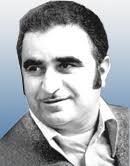
He was one of the worthy successors of the Karabakh school of singing. He received his professional music education at the Azerbaijan State Music School in Baku (1951-1956), studied mugham dasgahs in the class of Seyid Shushinsky, and became deeply acquainted with the secrets of the art of singing. He also took mugham lessons from Zulfi Adigozalov and Hagigat Rzayeva and improved his skills. Then he continued his education at the Azerbaijan State University of Culture and Fine Arts, and in those years began to work as a soloist of the Azerbaijan State Philharmonic.
"Chahargah", "Bayati-Kurd", "Mahu-Hindi", "Rast" mugham dasgahs, which he sang with great skill, were included in the fund of AzTV and enriched the treasury of Azerbaijani music. He also composed several songs, including "Gel inad etme" (Don't be stubborn), "Daglar bashi" (Mountain tops), "Almadaran"(Apple picker). He also referred to the composer's works, such as Jahangir Jahangirov's "Nasimi", "Ashig Ali" and others. performed a solo part in his cantatas.
He has been on more than 70 tours and has represented Azerbaijani culture in countries such as Colombia, Peru, Cuba, Japan, India, and Nepal. He was also engaged in pedagogical work, and his students were recognized as worthy successors of the singing school. After graduating from the Baku Music College named after Asaf Zeynalli, he was a soloist of the Azerbaijan State Philharmonic for many years. He worked as the artistic director of the Mugham Theater for about twenty years. He trained about 120 young performers and was awarded the Order of Glory by the President in 2004 for his services to the development of Azerbaijani art.
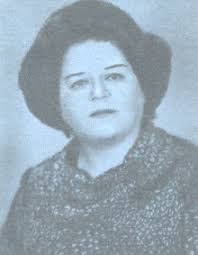
Firangiz Yusif gizi Ahmadova (1928-2011) — singer.
In 1955 she graduated from the Azerbaijan State Conservatory. In 1946-1951 she was a soloist of the Azerbaijan Radio Choir and in 1951-1988 of the Azerbaijan State Opera and Ballet Theater.
She has successfully performed in operas by Azerbaijani, Russian, and Western European composers. Main parts: Nargiz, Gulzar ("Nargiz", "Shah Ismayil", M.Magomayev), Nigar ("Koroglu", U.Hajibeyli), Sevil ("Sevil", F.Amirov), Sariyya ("Azad", C.Jahangirov), Sona ("Bahadir and Sona", S.Alasgarov), Maro ("Daisi", Z.Paliashvili), Aida ("Aida", C.Verdi), Tosca ("Tosca", C.Puccini) and s. "Sensiz" (Without you) (U.Hajibeyli), "Ölkem "(My country), "Sual" (Question) (A.Zeynalli), "Arzu" (Dream) (Niyazi), "Heyran olmusham" (A.Abbasov), "Okhuma gozal" (A.Rzayeva) and others. she masterfully performed Azerbaijani romances, as well as romances of classical Russian composers (P.Tchaikovsky, S.Rakhmaninov, S.Taneyev, etc.).
Firangiz Ahmadova from 1989 until the end of her life worked as a trainer-teacher at the Azerbaijan Opera and Ballet Theater. She was a deputy of the Supreme Soviet of the USSR (4th convocation) and the Supreme Soviet of the Azerbaijan SSR (5th convocation). She was awarded the Order of Glory of Azerbaijan.
Zeynab Yahya gizi Khanlarova (1936) — singer.
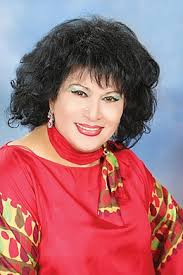
In 1956 she graduated from the Baku Pedagogical School named after MASabir and in 1961 from the Baku Music College named after A.Zeynalli. She has been a soloist of the Opera and Ballet Theater since 1961. She created the images of Leyli and Asli in Uzeyir Hajibeyov's operas "Leyli and Majnun", "Asli and Kerem". His repertoire includes mugham (Shahnaz, Mahur, Gatar, Bayati-Shiraz, etc.), tasnifs and Azerbaijani folk songs, also Azerbaijani composer songs (Gara Garayev, Fikret Amirov, Tofig Guliyev, Jahangir Jahangirov, Arif Malikov, Emin Sabitoglu, Alakbar Tagiyev, etc.) and oriental songs occupy a large place. She is one of the first performers of "Chahargah" mugham among female singers of Azerbaijan. She is also the author of several songs. A television documentary "Hello, Zeynab" was shot about her.
She has given concerts in most countries of the world.
She was a deputy of the Supreme Soviet of the Azerbaijan SSR (XI-XII convocation) and the Milli Majlis of the Azerbaijan Republic (I-IV convocation).
Zeynab Khanlarova has also been a deputy of the Milli Majlis of the Republic of Azerbaijan for many years. She was awarded the Order of Glory. People's Artist of Azerbaijan since 1975, People's Artist of the USSR since 1980, Laureate of the State Prize of the Azerbaijan SSR since 1985.
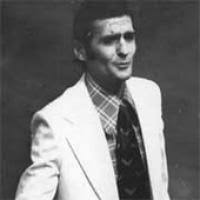
Ogtay Jafar oglu Agayev (1934-2006) — Azerbaijani singer.
Agayev's childhood was very difficult because it coincided with the war. The artist has loved music since childhood. In 1953 he entered the Music College named after Asaf Zeynalli. His teacher was Sofya Ivanovna Khalfen. The 78-year-old woman also sang. She taught Ogtay the secrets of vocal and worked hard to develop him as a vocalist.
After returning from military service, Agayev continued his education in Firudin Mehdiyev's class. Firudin Mehdiyev graduated from the genius Bulbul's class at the conservatory and began teaching at the technical school. Agayev has worked as a soloist in both major pop orchestras in Azerbaijan. Until 1970 he was a soloist of the Radio and Television Variety Orchestra under the direction of Rauf Hajiyev, and until 1984 under the direction of Tofig Ahmadov.
Agayev has toured in many foreign countries (Algeria, Morocco, Poland, the Czech Republic, Slovakia, Bulgaria, Romania, etc.), all the republics of the former USSR, and has given 11 concerts at the Kremlin Palace.
O.Agayev also worked in the art of cinema. He played the role of a police chief in Vagif Mustafayev's film "Japanese". He sang songs in "Find That Girl", "Battle in the Mountains" and other films. More than 200 of his songs have been recorded.
Fidan Akram gizi Gasimova (1947) — is an Azerbaijani opera singer.
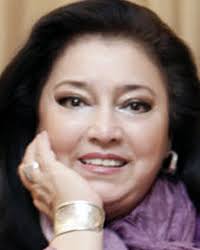
After graduating from the Bulbul music school, Fidan entered the Azerbaijan State Conservatory named after U. Hajibeyli in 1966, due to her brilliant talent and hard work, she studied two specialties at the same time — violin and vocals. After graduating from the Moscow Conservatory in 1974, she returned to Baku, where she became a soloist at the Azerbaijan State Academic Opera and Ballet Theater named after M.F. Akhundzade, and also began teaching at the Azerbaijan State Conservatory (now the Baku Music Academy).
F.Gasimova, People's Artist of Azerbaijan (1983), USSR (1988), laureate of the State Prize of Azerbaijan (1984), professor of the Baku Music Academy named after U.Hajibeyov since 1990, Istanbul State Conservatory of Turkey since 1992. Her work was appreciated in independent Azerbaijan. She was awarded the Order of Glory (1997) by Heydar Aliyev, as well as the Order of Honor (2010) and the Order of Independence (2017) by the order of President Ilham Aliyev.
F.Gasimova's album "Besame mucho" was released in 2008. The disc, recorded at the Eta Production studio, is dedicated to the first lady of the country, Mehriban Aliyeva. The name of the great artist is included in the book "100 women of the world".
People's Artist of Azerbaijan and the USSR Fidan Gasimova was awarded the title of the most famous performer in the world according to the encyclopedia compiled by the University of Cambridge in Great Britain in 2015 and was awarded a special diploma. Fidan Gasimova is the only performer of the musical culture of Azerbaijan to be awarded this highest award.
.jpg)
Gasimova Khuraman Akram gizi (1951) — Azerbaijani opera singer.
The parents of Khuraman and his older sister Fidan Gasimova have always been interested in art, writing poetry, and music. She graduated from the Azerbaijan State Conservatory in 1975. She has been a soloist of the Azerbaijan Opera and Ballet Theater since 1976. Main parties: Selma ("Deceived Stars", M.Guliyev), Sevil and Dilbar ("Sevil", F. Amirov), Nigar ("Koroghlu", U.Hajibeyov), Mimi and Muzetta ("Bohema", G. Puccini), Desdemona, Aida ("Othello", "Aida", G.Verdi), Tatiana ("Eugene Onegin", P.Tchaikovsky), Khurshudbanu Natavan (Natavan, Vasif Adigozalov) and others. 5th Transcaucasian Competition of Performers (1977, I Prize), 7th All-Union Competition of Vocalists named after M. Glinka 1977 and International Competition named after Maria Callas Athens, 1981; She was also awarded the Grand Prix gold medal, as well as the winner of the 8th International Tchaikovsky Competition (Moscow, 1982). Khuraman has appeared in films such as "I was not beautiful", "Life tests us". She has been teaching at the Baku Music Academy since 1982. Since 1993, she has been the head of the solo reading department, since 1996, she has been a professor at the Istanbul State University Conservatory. Khuraman has performed in foreign countries such as Bulgaria, Czech Republic, Slovakia, Malta, France, Austria, Norway, Turkey, Finland, etc.



